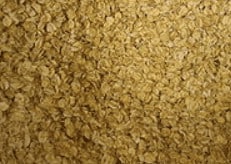new to the gluten free journey?
new to the gluten free journey?
Contents
Toggle The question of oat safety for those with gluten sensitivity continues to be challenged. Many consumers become confused because many brands of packaged oats contain the statement – “Gluten Free”. In a recent post, we discussed the potential danger of oat consumption. And now a recent double blind study investigated compared the wheat, barley, rye free diet (traditional gluten free diet) with a wheat, barley, rye, and oat free diet.
The study published in March 2014, did not investigate whether those eating oats had an antibody response. Instead the focus of the study investigated changes in a compound called short chain fatty acids (SCFA’s). SCFA’s are specialized fats produced by the friendly bacteria that live in our colon. A balance of SCFA is important because SCFA’s are the primary fuel source for the cells of the large intestines. An imbalance in these fatty acids can not only alter bacterial flora, but it can hinder the ability of the colonocytes (cells of the large intestine) to regulate normal function.
The study titled:
“The effects of oats on the function of gut microflora in children with coeliac disease.”
concluded the following –
The question of oat safety for those with gluten sensitivity continues to be challenged. Many consumers become confused because many brands of packaged oats contain the statement – “Gluten Free”. In a recent post, we discussed the potential danger of oat consumption. And now a recent double blind study investigated compared the wheat, barley, rye free diet (traditional gluten free diet) with a wheat, barley, rye, and oat free diet.
The study published in March 2014, did not investigate whether those eating oats had an antibody response. Instead the focus of the study investigated changes in a compound called short chain fatty acids (SCFA’s). SCFA’s are specialized fats produced by the friendly bacteria that live in our colon. A balance of SCFA is important because SCFA’s are the primary fuel source for the cells of the large intestines. An imbalance in these fatty acids can not only alter bacterial flora, but it can hinder the ability of the colonocytes (cells of the large intestine) to regulate normal function.
The study titled:
“The effects of oats on the function of gut microflora in children with coeliac disease.”
concluded the following –
Our results indicate that oats do affect the gut microflora function, and that some coeliac children receiving oats may develop gut mucosal inflammation, that may present a risk for future complications.Source: Aliment Pharmacol Ther. 2014 Mar 24.
Stay up-to-date with the latest articles, tips, recipes and more.

*These statements have not been evaluated by the Food and Drug Administration. This product is not intended to diagnose, treat, cure or prevent any disease.
If you are pregnant, nursing, taking medication, or have a medical condition, consult your physician before using this product.
The entire contents of this website are based upon the opinions of Peter Osborne, unless otherwise noted. Individual articles are based upon the opinions of the respective author, who retains copyright as marked. The information on this website is not intended to replace a one-on-one relationship with a qualified health care professional and is not intended as medical advice. It is intended as a sharing of knowledge and information from the research and experience of Peter Osborne and his community. Peter Osborne encourages you to make your own health care decisions based upon your research and in partnership with a qualified health care professional.
5 Responses
Would someone please explain to me why some of us cannot tolerate eating the gluten free oats? I loved oatmeal, oatmeal cookies, oatmeal bread. I’ve tried several times now with the special gf oats and get sick everytime.
I have a child with wheat allergy, so although not told to do so, I try to eliminate all gluten. Is it suggested to do this? Would gluten free oats be avoided as well? How is the ph of the mouth maintained?
Can you please clarify did the study use uncontaminated oats or mainstream oats.?
I am gluten intolerant and eat a g-f diet, but I seem to tolerate these gluten – free oats pretty well. No digestive issues with them. My diet ( which is largely sugar – free and potassium free for renal and pre diabetes) offers me too little fibre, and oats at least got the constipation I suffer somewhat alleviated.
Do your homework: it may not be the gluten contamination at all in oats but the oats themselves which have harmful lectins. Avoid ALL GRAINS along with Rice: ANY seed from a plant that is a monocot has lectins that are all harmful to a lot of people. If you are still unwell after avoiding wheat gluten, then have the Cyrex Array 4 test done to see if you are intolerant to ALL grains and other foods as well such as tomatoes, potatoes (members of the nightshade family), milk and milk products, legumes (such as peas, beans, soy lentils etc.) If you are intolerant to these, then no amount of gluten avoidance will make you well. Read the list of foods with lectins here http://www.owenfoundation.com/Health_Science/Lectins_in_Foods.html. I do not agree that blood type makes any difference in the food you should eat. Avoid the foods with at least one + mark for at least a month and see if you do get better. I noticed the difference in just a week.